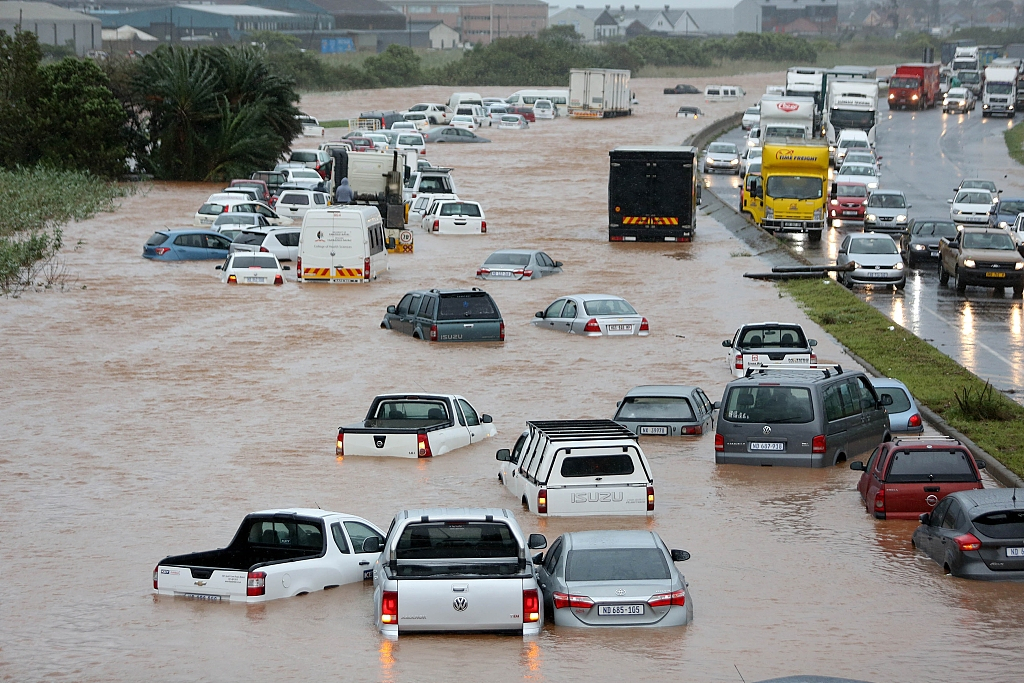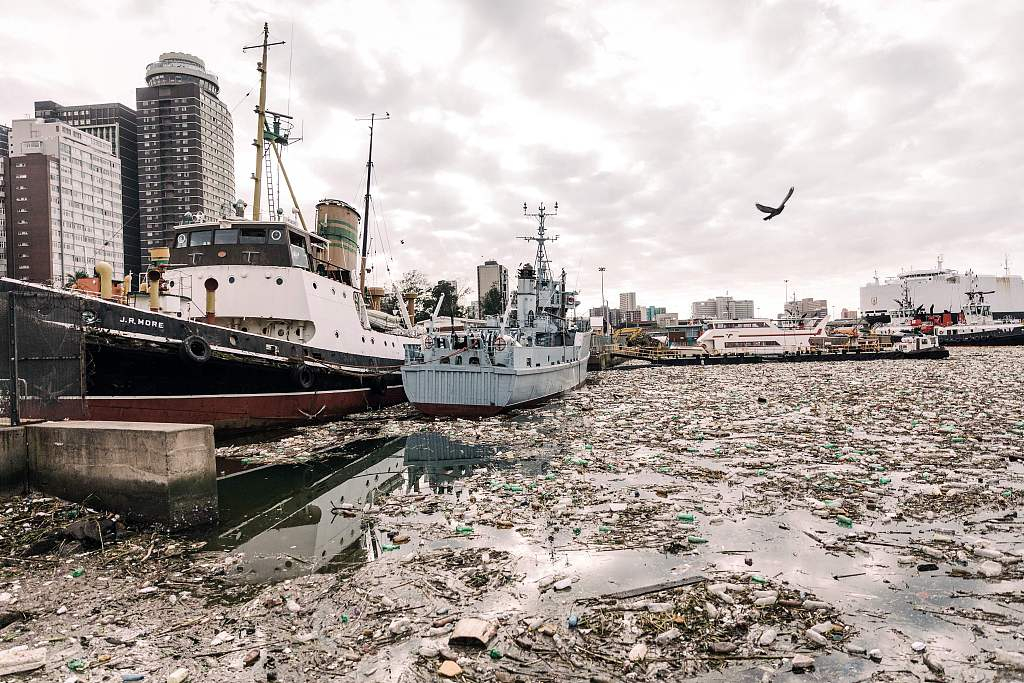
Opinion
15:55, 05-Jun-2019
Public involvement needed in building resilient cities
Sonny Patel

Editor's Note: Sonny Patel is a U.S. National Institutes of Health Fogarty Global Health scholar and fellow at Harvard T.H. Chan School of Public Health, Harvard University. The article reflects the author's opinion, and neither necessarily the views of National Institutes of Health or Harvard University, nor those of CGTN.
News that the Trump administration is seeking to limit the science on climate change has been recently announced, nearly two years after U.S. President Trump announced his intention to withdraw from the Paris Climate Agreement. In contrast, South Africa and its reelected President Cyril Ramaphosa have recently signed a new tax on carbon emissions, effective on June 1, 2019, as in alignment with Paris Climate Agreement.
Both the U.S. and South Africa have experienced environmental challenges, with the recent floods in the American Midwest and KwaZulu-Natal (SA) to drought conditions seen respective countries in the past.
In the past week, I presented on climate change, flooding and resilience at the global festival of science, Pint of Science in Cape Town, South Africa. Pint of Science is organized by a grassroots community of thousands of scientists and volunteers across the world in over 300 cities globally to connect science to the public.
Below are key takeaways that I shared with the South African community:
As disasters continue to occur yearly, loss of life (the death toll) in affected areas have been lower than previous yearly averages. In 2018, the death toll was 10,373 lives lost, which is quite lower than the latest annual average of 77,144 deaths recorded between 2000 and 2017, according to Centre for Research on the Epidemiology of Disasters (CRED).
Of course, the averages may be inflated by "mega-disasters" (large-scale loss of life in catastrophic events), such as Chinese drought in 2002, Indian Ocean Tsunami in 2004, Kashmir earthquake in 2005, Hurricane Katrina in 2005, Haiti earthquake in 2010, and Japanese earthquake and tsunami in 2011.

Cars are seen semi-submerged on the road during severe floods in Durban, South Africa, October 10, 2017. /VCG Photo
Cars are seen semi-submerged on the road during severe floods in Durban, South Africa, October 10, 2017. /VCG Photo
There were no "mega-disasters" in 2018, which can attribute to mostly why the death toll is lower than the averages of years prior. However, the loss of life from major hazards could also be declining due to more emphasis and importance by government agencies, for-profit corporations, and non-profit organizations on resilience and improving the disaster risk reduction policy and crisis management in communities.
Improving standards on disaster risk and crisis management have helped this declined, but we still have a long way to go.
In 2018, 68 million people worldwide were affected by a disaster; of which, floods continued to affect the largest number of people, 35.4 million people, according to CRED. In the last few months, floods have been impacting communities, especially in Southern Africa.
Only recently, the Ministry of Cooperative Governance and Traditional Affairs Department for the South African government declared the floods in KwaZulu-Natal as a provincial disaster.
This declaration happens several weeks later and would finally open essential resources to affected communities where over 70 lives lost and several hundreds more destitute from the floods that occurred last month. The current financial damage in KwaZulu-Natal is estimated at 1.1 billion South African rand.
Community building through dealing with disaster has been the latest response to coping to disaster impacts. A growing movement worldwide is to plan and build 100 Resilient Cities (100RC), an initiative pioneered and led by The Rockefeller Foundation.

Tons of debris, mostly plastic and wood, swamped the Port of Durban, April 28, 2019. /VCG Photo
Tons of debris, mostly plastic and wood, swamped the Port of Durban, April 28, 2019. /VCG Photo
In Cape Town, South Africa, the city of Cape Town, a member of 100RC, has recently released the city's resilience strategy and open for public feedback. The goal of the strategy is to create a resilient Cape Town, defined as:
“A resilient Cape Town is a compassionate, connected and capable city, where Capetonians collaborate across households, communities and institutions, to build collective responses to the current and future social, environmental and economic challenges.”
Regardless of your belief on climate change and resilience, preparing cities against potential disasters should resonate with us all. In order for a preparedness plan and strategy to work effectively, especially at a city level, a diverse and variety of stakeholders and citizens living in the city needs to provide input along with buying in and following the agreed upon vision and action.
No easy task but until global and national policy change away from politics to focus on preparing communities against potential threats, we must all contribute where we can – for Capetonians, it is having your say about the city's resilience strategy.
(If you want to contribute and have specific expertise, please contact us at opinions@cgtn.com.)

SITEMAP
Copyright © 2018 CGTN. Beijing ICP prepared NO.16065310-3
Copyright © 2018 CGTN. Beijing ICP prepared NO.16065310-3